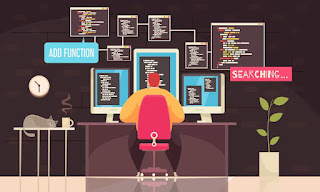Redefining Hospitality Safety: How Vision AI Elevates Hotel Operations and Workplace Safety
The hospitality industry, with its constant pursuit of excellence in guest experience, faces unique challenges in ensuring safety and security. Hotels must maintain high standards of service while safeguarding the well-being of both guests and staff. Vision AI, a subset of artificial intelligence that enables machines to interpret and make decisions based on visual data, has emerged as a game-changer in addressing these challenges. By integrating Vision AI into hotel operations, the hospitality industry can elevate safety measures, optimize operational efficiency, and enhance the overall guest experience.
Enhancing Security Measures with Vision AI
1. Real-Time Surveillance and Threat Detection
Computer vision AI in hospitality has revolutionized how hotels maintain security. Vision AI's capability to monitor video feeds in real-time allows hotels to maintain an unprecedented level of security. Traditional security cameras are limited to passive monitoring, where human operators must constantly watch video feeds to detect potential threats. In contrast, Vision AI can automatically analyze these feeds, identifying unusual behaviors, unauthorized access, and potential threats such as intruders or suspicious objects. This proactive approach to surveillance significantly reduces the response time to security incidents, enabling swift intervention before situations escalate.
2. Facial Recognition for Enhanced Access Control
Vision AI-powered facial recognition technology is transforming how hotels manage access control. By identifying and verifying individuals entering restricted areas, such as guest rooms, staff-only zones, or VIP sections, Vision AI ensures that only authorized personnel gain access. This not only enhances security but also streamlines operations by eliminating the need for traditional keycards or manual checks. Additionally, facial recognition can be used to personalize guest experiences by recognizing returning customers and offering them tailored services based on their preferences.
3. Advanced Fire and Smoke Detection
Traditional smoke detectors often face limitations in detecting early-stage fires or distinguishing between smoke and other substances. Vision AI can enhance fire safety by analyzing video feeds for visual signs of fire or smoke, even in areas where traditional detectors may fail. This early detection capability allows for quicker evacuation and response, potentially saving lives and minimizing property damage. Vision AI can also monitor compliance with fire safety regulations, such as ensuring fire exits are unobstructed and fire extinguishers are properly maintained.
Improving Workplace Safety and Operational Efficiency
1. Automated Monitoring of Hazardous Conditions
In hotel environments, staff often work in conditions that involve physical hazards, such as wet floors, sharp objects, or heavy lifting. Vision AI can be used to continuously monitor these environments, identifying potential safety hazards in real-time. For example, if a spill occurs in a kitchen or hallway, Vision AI can immediately alert the cleaning staff to address the hazard, preventing slip-and-fall accidents. This proactive approach to safety ensures that hazards are mitigated before they result in injuries.
2. Ensuring Compliance with Health and Safety Protocols
The COVID-19 pandemic has heightened the need for stringent health and safety protocols in the hospitality industry. Vision AI can play a crucial role in ensuring compliance with these protocols, such as monitoring social distancing, mask-wearing, and hand hygiene practices. By analyzing video feeds, Vision AI can detect instances of non-compliance and send alerts to management, allowing for timely corrective actions. This not only protects guests and staff from potential health risks but also helps hotels maintain their reputation for safety and cleanliness.
3. Optimizing Housekeeping and Maintenance Operations
Vision AI can be integrated into housekeeping and maintenance operations to enhance efficiency and safety. For example, Vision AI can monitor guest rooms and common areas to determine when cleaning or maintenance is required. This data-driven approach ensures that rooms are cleaned and maintained based on actual usage rather than a fixed schedule, leading to better resource allocation and reduced operational costs. Moreover, Vision AI can identify maintenance issues such as faulty equipment or structural damage, allowing for timely repairs that prevent accidents and improve guest satisfaction.
Elevating the Guest Experience
1. Personalized Guest Services
Vision AI has the potential to revolutionize the guest experience by enabling personalized services that cater to individual preferences. For example, facial recognition can identify guests as they enter the hotel, allowing staff to greet them by name and offer personalized recommendations based on their previous stays. Vision AI can also analyze guest behavior and preferences during their stay, enabling the hotel to provide tailored services such as customized room settings, dining options, or activity suggestions. This level of personalization not only enhances guest satisfaction but also fosters customer loyalty.
2. Enhancing Privacy and Data Security
While Vision AI offers numerous benefits, it is essential for hotels to address concerns related to privacy and data security. Hotels must implement robust data protection measures to ensure that guest information, such as facial recognition data, is securely stored and used only for intended purposes. Additionally, guests should be informed about the use of Vision AI and given the option to opt-out if they have privacy concerns. By being transparent about their use of Vision AI, hotels can build trust with guests while still reaping the benefits of advanced technology.
3. Streamlining Check-In and Check-Out Processes
Vision AI can significantly streamline the check-in and check-out processes, reducing wait times and enhancing the overall guest experience. For instance, guests can check in using facial recognition technology, which verifies their identity and automatically assigns their room without the need for traditional paperwork or keycards. Similarly, Vision AI can expedite the check-out process by detecting when guests leave their rooms, automatically generating invoices, and processing payments. This seamless experience not only improves guest satisfaction but also frees up staff to focus on providing exceptional service in other areas.
.png)
%20(4).png)


Comments
Post a Comment